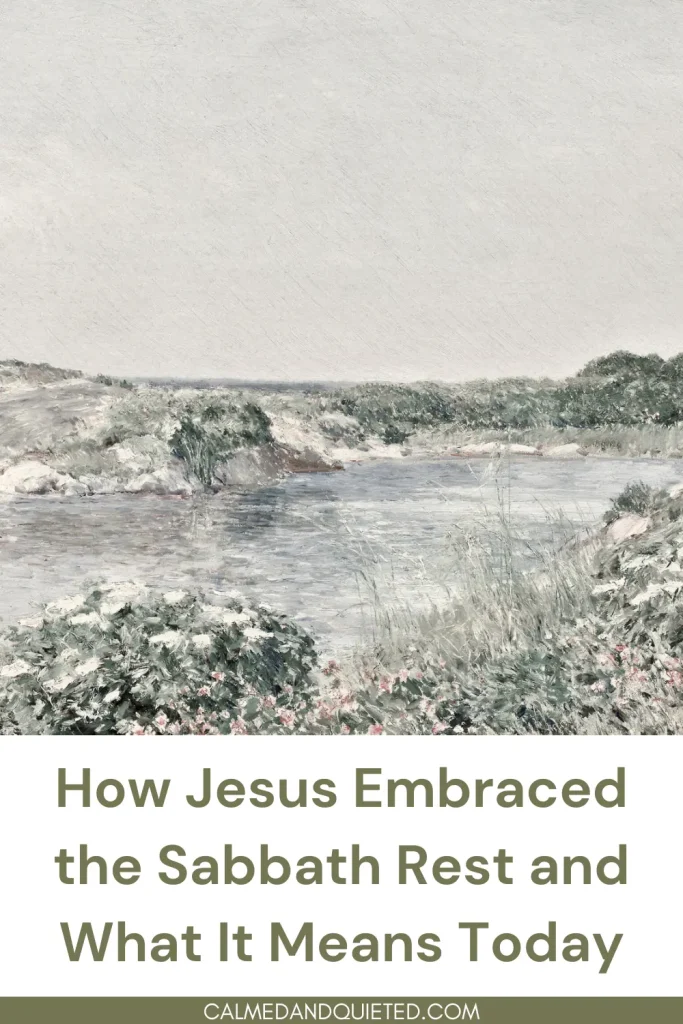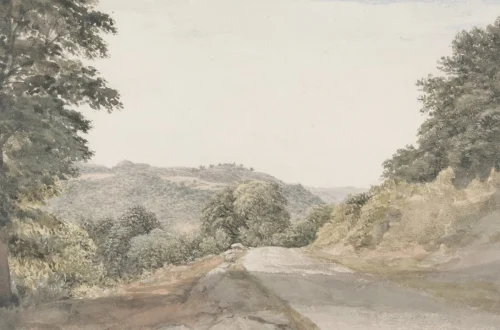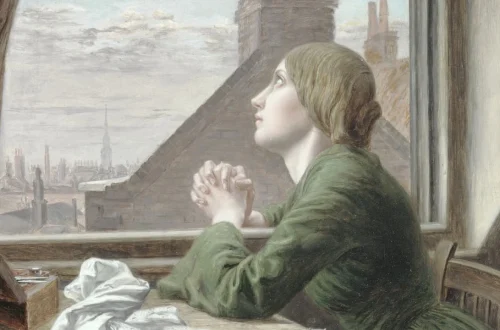
How Jesus Embraced the Sabbath Rest and What It Means Today
Life today feels like an endless cycle of to-do lists and responsibilities. Finding time to rest seems almost impossible—and yet, it’s something we were created to need. Rest isn’t just a luxury; it’s part of God’s design. For His people, it’s more than physical recovery. It’s a divine calling, an opportunity to step away from the noise and reconnect with the One who made us. Maybe that’s why the Sabbath was so important—it wasn’t about rigid rules but about remembering what really matters.
When I think about it, the Sabbath feels like an anchor. It pulls us back to the truth that life isn’t supposed to revolve around work or endless goals. It’s about pausing, abiding in God’s Word, and letting His presence bring peace. It’s not easy, though. I’ll admit, sometimes I forget this myself. The weeks blur together, and before I know it, rest feels like just another task I failed to check off.
But Jesus didn’t live like that. He showed us another way. He modeled a rhythm of rest and worship that feels almost countercultural today. His life wasn’t rushed. His moments of quiet—whether praying alone or spending time with His disciples—show us that the Sabbath isn’t meant to weigh us down. It’s not another “should” on our spiritual to-do list. It’s a gift. A time to stop, breathe, and focus on what matters most: our faith, our loved ones, and the renewal of our spirits.
And maybe that’s the hardest part—letting go. Letting the unfinished chores, the pending emails, and even the well-meaning plans wait. Resting isn’t always convenient, but perhaps that’s the point. It reminds us we’re not in control, and we don’t have to be. God’s already taken care of that.
Understanding the Origins of the Sabbath
The Sabbath began at creation, when God rested on the seventh day—not out of weariness, but as a declaration that rest is holy and essential. From the beginning, it was woven into the rhythm of life—a sacred pause meant for renewal, especially of the spirit.
For the Israelites, it became more than a break from work. It was a covenant, a weekly reminder of their identity as a people freed by God and sustained by His hand. Observing the Sabbath was an act of trust, of shifting focus from self to God. It wasn’t simply a law—it was liberation.
The Sabbath of complete rest became a cornerstone for the people of Judah, with the following Bible verses pointing to its significance as a time to honor their relationship with the Lord God.
Genesis 2:2-3: God blessed the seventh day and made it holy because He rested from His work of creation.
Exodus 20:8-10: The fourth commandment instructs the people of Israel to remember the Sabbath day and keep it holy as a day of rest.
Leviticus 23:3: The Sabbath is described as a day of solemn rest, a holy convocation, to cease from work and gather in worship.
Deuteronomy 5:12-14: A reiteration of the Sabbath law, emphasizing rest for everyone, including the female servant and the foreigner within their gates.
Isaiah 58:13-14: A promise of delight and blessing for those who honor the Sabbath and refrain from pursuing their own pleasure on the Lord’s holy day.
I was reminded of this recently after a long, chaotic season. I set aside a Sunday—no chores, no emails. Just Scripture, journaling, a slow walk. It felt like a deep breath for my soul. That day helped me remember: Sabbath isn’t about following rules. It’s about making space for God, because we need Him, not just because we’re told to.
Scripture also points us forward. Hebrews speaks of a rest yet to come—a fuller, eternal peace in Christ. The Sabbath gives us a glimpse of that future, a foretaste of joy in God’s presence.
Whether it’s Sunday, Saturday, or another day, the heart of Sabbath is the same: to pause, to realign, to trust. We won’t always practice it perfectly, but even that is part of the grace it offers. Rest reminds us we belong to God—and that is enough.
Jesus as the Lord of the Sabbath
When Jesus declared Himself Lord of the Sabbath, He wasn’t rejecting the holy Sabbath—He was revealing its heart. There was much discussion when His disciples plucked grain on a day of sabbath rest during the days of Abiathar. To the religious leaders, it seemed a clear violation of a religious festival, but Jesus responded gently, reminding them: “The Sabbath was made for man, not man for the Sabbath.” It was never meant to burden—but to bless.
Rooted in the seventh day of creation, the sabbath of solemn rest was a gift. A rhythm. And Jesus lived that truth—not with rigidity, but with compassion. He healed, restored, and re-centered people’s hearts on God. Like the woman He healed in the house of God, bent for years and suddenly standing tall. That moment—filled with mercy—said more than rules ever could.
To the house of Israel, the Sabbath marked God’s deliverance by a mighty hand. For us today, it still speaks: a whisper to rest, reflect, and remember who we are as God’s children.
In a world full of noise, it’s easy to let the Lord’s Day blur into just another checkbox. But even a quiet pause—perhaps reading Scripture or meditating on God’s promises—can realign our hearts.
No one should pass judgment on how we honor the Sabbath. It’s not about perfection. It’s about trust, presence, and the quiet joy of belonging to Him.
Observing the Sabbath in Jesus’ Time
When Jesus honored the holy Sabbath, He did so with both reverence and intention. He didn’t just follow tradition—He embodied it in a way that challenged people to look deeper. In the Gospels, we see Him teaching, healing, and showing that the day of sabbath rest was never meant to be a burden. It was always meant to be a blessing.
His healing of the woman bound for eighteen years, His defense of the disciples eating on the Sabbath—these weren’t just compassionate moments. They were deliberate acts pointing back to the heart of the seventh day of creation, when God rested. Jesus wasn’t dismissing the Sabbath. He was restoring it.
Of course, His approach stirred much discussion. Religious leaders clung tightly to every detail of the religious festivals, perhaps trying to honor God but missing the freedom built into the rhythm. Jesus brought that freedom back. The house of God wasn’t a place of rule enforcement—it was where healing, worship, and mercy met.
For those of us navigating full lives—especially women balancing families, faith, and work—this matters. Jesus didn’t model a Sabbath that demands perfection. He showed us one filled with grace. A gift of rest, not a checklist.
Maybe our Sabbath doesn’t look polished. Maybe it’s quiet moments between tasks or reading Scripture- That’s okay. The invitation still stands: to pause, to breathe, to remember that we are God’s children, already held in His care.
How Jesus Embraced the Sabbath Rest
Jesus approached the Sabbath with a striking blend of balance and intentionality, reminding us of its true purpose through His actions. He healed on the Sabbath—a bold, almost provocative choice. Was it a defiance of tradition? Not at all. It was an act of mercy, showing that compassion has no timetable. Even the men of Tyre, along with others who watched in awe, saw how He transformed the Sabbath into something deeper: a living, breathing expression of God’s love.
But Jesus didn’t just heal. He also withdrew. There were times He slipped away to quiet places, alone with the Father. These moments—simple, unhurried, and deeply personal—were His way of aligning with God’s rhythm. Can you imagine the stillness He must have felt? The peace of surrendering, fully and without resistance, to divine rest? It’s a striking contrast to how we often treat rest, isn’t it? We almost apologize for needing it.
For us, this is a powerful reminder. Rest doesn’t have to come with guilt attached. Jesus’ example flips the script. The Sabbath isn’t about doing everything right or ticking off spiritual boxes—it’s about letting go. It’s a chance to pause, breathe, and find renewal in God’s presence. No striving. Just grace.
And yet, He also told His followers something profound: the Sabbath isn’t a tool for judgment or a standard of perfection. It’s a gift. For anyone trying to juggle endless to-do lists, emails, and the chaos of daily life, that’s a relief, isn’t it? The Sabbath doesn’t demand that we get it all together—it meets us where we are, with open arms.
Of course, it’s easier said than done. Maybe some of us wrestle with this. We try to rest but end up feeling restless. Maybe that’s the point. Rest, like faith, is a practice. It takes time to lean into it, to trust that ceasing from our work is not just okay but good. It’s something I’m still learning, to be honest. Maybe you are too.
If you’ve been longing to deepen your walk with God but don’t know where to start, you’ll love How to Get Closer to God: A Step-by-Step Biblical Guide. It offers gentle practices and Scripture-based rhythms to nurture intimacy with Him in everyday life.
The Sabbath and Modern Christian Living
For Christian women navigating today’s fast-paced world, the Sabbath of the Lord isn’t just an ancient command—it’s a divine gift. In a culture where success often demands nonstop activity, choosing to rest on the Lord’s holy day becomes an act of quiet trust. It’s a way of saying,
“Lord God, Your provision is enough. I don’t have to carry it all.”
This holy day, grounded in the Word of God, also reminds us of the consequences the children of Israel faced when they ignored God’s design for rest. The fourth commandment was more than a call to stop working—it was a call to align our hearts with God’s will.
Rest renews the body, yes, but more importantly, it re-centers the soul. And this invitation to rest wasn’t just for leaders or priests. Even the female servant, often the most burdened, was included. That alone speaks volumes: Sabbath is for everyone.
But rest doesn’t mean inactivity. It means setting aside your own pleasure and stepping away from normal routines. It’s about making room for trust in God’s care.
Think of Mary Magdalene, quietly seeking Jesus at the dawn of the first day of the week. That simple act of devotion—away from distraction—embodies true Sabbath rest.
While some ceremonial laws—like the burnt offering or the ninth day of the month observances—are no longer followed, the Sabbath remains a holy day of the Lord, meant to draw us closer to Him.
Even now, this recurring theme of rest echoes through the heights of the earth and the gates of Jerusalem. It’s not just about a day off. It’s about receiving the good news of God’s provision.
We remember the people of Israel, freed from the land of Egypt, taught to depend on God for their daily bread. That lesson still applies.
When we honor the Sabbath day of complete rest, we step into a shadow of what’s to come—a glimpse of the eternal rest promised by the Son of Man, our great High Priest.
It’s a space to pause, to reflect, and to listen to the mouth of the Lord. A time to rediscover the deep importance of rest—not just for ourselves, but for all of God’s people.
Sabbath Rest as an Act of Worship
Sabbath rest isn’t just a pause from our busy lives—it’s worship. A quiet, deliberate way of saying God is worthy of our time, our trust, and our attention. When we step back from work, even briefly, we’re entering something sacred. It’s not about idleness—it’s about aligning with God’s rest, as modeled on the seventh day of creation.
God didn’t rest because He needed to. He rested to show us something vital—that fullness, not just productivity, is part of His design. This rhythm still echoes today, reminding us that we are not machines, but God’s children, created for relationship, not just output.
In the New Testament, Jesus deepened this truth. He healed, taught, and restored on the Sabbath. Think of the daughter of Abraham He healed—His compassion revealed the heart behind the command. It wasn’t about rules. It was about restoration.
In a world of email addresses and constant notifications, true rest feels radical. But maybe that’s the point. Sabbath reminds us to release control. It whispers that God provides the heads of grain, and we don’t need to gather endlessly.
Let us not let one pass judgment on how it looks. Let each heart find its rest in Him.
Viewing the Sabbath of Complete Rest as a Time to Honor God
The Sabbath isn’t just about stopping work. It’s deeper than that—more like creating space, intentionally, for God to move in ways we might miss during the week. When we step back from the noise and activity, we give Him room to speak, to realign our hearts. Not perfectly, perhaps, but meaningfully.
For some, that might look like reading a few verses of Scripture and sitting quietly with them. Others might find that worshiping with their church community brings a different kind of stillness, even in the presence of others. Sometimes, I just sit with a cup of tea and say nothing at all—just breathing, thinking, listening. Is that rest? I believe so.
We don’t rest because we’ve earned it. We rest because God commanded it—and because He knows we need it more than we realize. It’s a kind of surrender, really. A way of saying, “You’re in control, Lord, not me.”
The Sabbath reminds us that we’re not defined by how much we get done. There’s peace in that. And over time, this weekly pause shapes our rhythm. It helps us remember who we are and, more importantly, whose we are.
Overcoming Challenges to Embracing the Sabbath
Let’s be honest—honoring the Sabbath isn’t always simple. In theory, it sounds beautiful. A whole day to rest, worship, slow down. But in practice? It can feel nearly impossible. Between work responsibilities, household needs, and that never-ending list of things we didn’t quite finish during the week, setting aside intentional time with God takes effort. Sometimes more than we expect.
One of the biggest challenges, I think, is just the sheer pace of life. Weekends tend to fill up fast—groceries, errands, family gatherings. Rest often feels like something optional, something we can’t afford. But the Sabbath was never meant to be a reward for getting everything done. It’s a gift. A command, yes—but a compassionate one. God wasn’t asking us to stop for His sake, but for ours.
Then there’s the constant buzz of technology. Notifications, updates, messages—they follow us everywhere. I’ve noticed that when I don’t put my phone away, I’m not really resting. I’m scrolling. So now, on the Sabbath, I try to turn things off for a while. Not always perfectly. But when I do, the quiet feels fuller somehow.
And for those with kids, there’s another layer. A full day of stillness isn’t exactly easy for little ones. But it helps to bring them into the rhythm—light a candle, read a Bible story, say a short prayer together. It doesn’t have to be elaborate. Just shared. Just real.
Little by little, these small choices create space for God to meet us in the pause.
Addressing Modern Barriers to Observing the Sabbath Jesus Modeled
When we look at the way Jesus observed the Sabbath, it wasn’t about rigid routines or ticking religious boxes. It was about presence—about slowing down enough to notice people, to show compassion, and to rest in God. That rhythm, gentle and grace-filled, feels so different from the version we sometimes carry today. Still, stepping into that kind of rest isn’t without its obstacles.
One of the biggest? The pressure to always be doing. Our culture practically worships productivity. Rest can feel like laziness—or at least like something we have to justify. But the Sabbath, at its core, says the opposite: You are not your output. You are already enough, because you belong to God.
Another common struggle is the assumption that Sabbath must follow some strict, idealized format. But when Jesus healed on the Sabbath, He was showing us something deeper: that love and mercy aren’t interruptions to rest—they’re part of it. That realization was freeing for me. It meant my day of rest didn’t need to look perfect to be meaningful. And maybe yours doesn’t either.
Of course, in today’s world, finding a full day to pause can be tricky. Jobs don’t always allow it. Life doesn’t slow down. But even then, we can get creative. Maybe it’s a quiet evening walk, a no-work afternoon, or a few sacred hours carved out midweek.
It’s not about getting it all right. It’s about choosing, again and again, to come back to rest.
Practical Ways to Honor the Sabbath
You don’t need elaborate plans to make the Sabbath meaningful. In fact, the simpler it is, the more it often speaks to the heart. The goal isn’t to impress anyone—not even yourself. It’s to rest, to reconnect, to slow down enough to remember who God is… and who you are in Him.
One gentle way to start is by choosing a small spot in your home—maybe just a chair in the corner, a Bible nearby, a candle lit not for atmosphere but as a quiet signal: this is holy ground today. For me, it’s a small side table with my journal and a soft light. It helps shift the mood. That’s all. Just a small shift. If you live with family, maybe gather in the living room, share a prayer together, hum a hymn. Nothing too polished.
Rituals help, too—not rigid ones, just small, grounding habits. A morning cup of tea, reading a Psalm slowly. Writing down one thing you’re grateful for or one way you saw God show up this week. Maybe even lighting a candle or just sitting in the silence for a moment longer than usual.
Families might share reflections after a meal, or take turns reading verses aloud. We’ve made prayer cards together, just a few lines of thanks or requests, folded and placed in a jar to revisit later. It’s not formal, but it’s meaningful.
And if you’re able to worship with others—go. But if not, it’s okay. Home can be sacred, too.
Some will find God in Scripture. Others, while walking under trees or baking bread with quiet hands and a listening heart. There’s no formula here. Only an invitation.
Let go of perfection. Just rest. And let that be enough.
Embracing the Sabbath Rest Today
The Sabbath is a beautiful reminder of God’s grace and care for His people. It’s a divine invitation to step away from the noise of life and find renewal in His presence. By following the example of the Sabbath that Jesus lived and taught, we can experience the right hand of God upholding us in every season.
This day is not just a holy day but a cornerstone of faith for the long time ahead. It’s a time to reflect, rest, and grow, aligning our hearts with the Holy Spirit. Like the gentle rhythm of creation itself, the Sabbath invites us to experience God’s peace, making it an important thing in our spiritual journey.
As we reflect on how Jesus embraced the Sabbath and what it means for us today, it’s clear that this holy day is more than a pause—it’s an invitation. It’s a call to draw near to God, to set aside our endless to-do lists, and to find peace in His presence. Whether through acts of worship, time with loved ones, or quiet moments of reflection, the Sabbath allows us to realign with the rhythm of grace He designed for our lives.
PIN ME FOR LATER!

How do you honor the Sabbath in your own life? Are there practices or routines that help you connect with God’s peace and renewal?
I’d love to hear your thoughts and experiences. Share your reflections or ideas in the comments below, and let’s encourage one another in this journey of embracing the rest that only God can provide.




